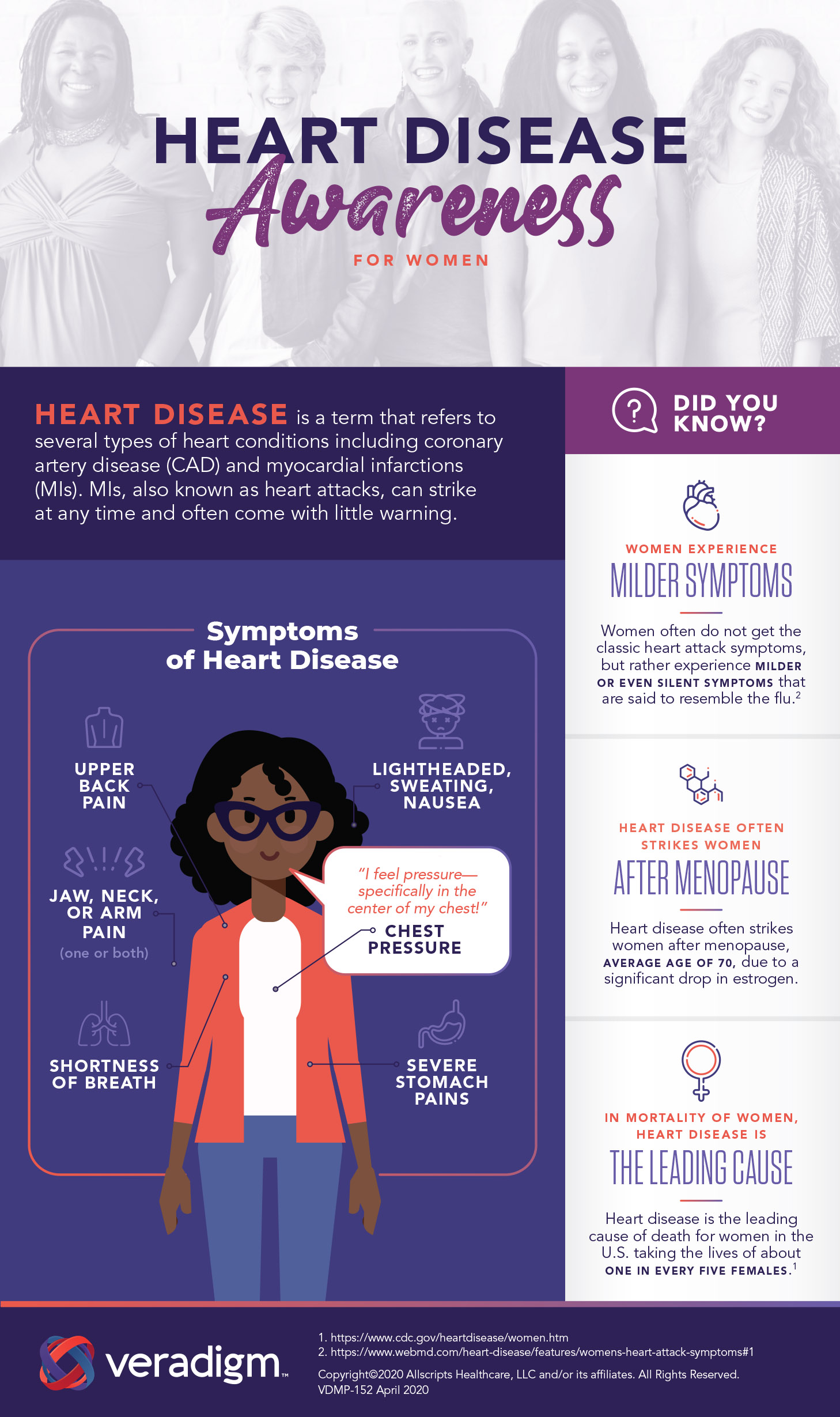Women’s Health – Heart Disease Prevention

Heart disease is a term that refers to several types of heart conditions, including coronary artery disease and heart attack. Nearly the same number of women as men experience heart attacks in the United States (U.S.) each year and, surprisingly, heart disease is the leading cause of death for women in the U.S. taking the lives of about one in every five females.1
Like many other conditions, not all heart attack symptoms are the same for men and women. Although women may have “classic” heart attack symptoms (e.g., chest pain, nausea, sweating), women are more likely than men to experience atypical symptoms or no symptoms at all. Chest pain is the most common heart attack symptoms but some women may instead experience pain in their back or jaw.2 Although men commonly say their chest pain feels like an elephant is sitting on their chest, women may report the sensation of an elephant sitting on their stomachs instead.2
It’s important to be aware of the gender differences as proper education of symptoms may help women identify a heart attack sooner. Women who experience both typical and atypical symptoms of heart attack should seek medical attention immediately (do not wait till symptoms worsen), call for an ambulance (do not try to drive yourself to hospital), and do not dismiss symptoms (thinking it may go away). It is extremely important to tell your doctor about ANY new or disturbing symptoms that even remotely might be related to your heart.2
Lifestyle modifications can reduce the risk of having a heart attack. Risk factors for a heart attack include diabetes, obesity, unhealthy diet, physical inactivity, and excessive alcohol consumption. Some ways to reduce the heart disease risk include awareness and active management their risk factors. Healthy lifestyle choices to reduce risk include making better food choices including adopting a diet low in sodium, getting regular physical activity, limiting alcohol consumption, managing stress levels, avoid tobacco products, checking blood pressure on a regular basis, and getting routine blood work to evaluate cholesterol.1
Veradigm is dedicated to using our technology, analytics and point-of-care tools to help in the fight against coronary heart disease. We are partnering with the American College of Cardiology (ACC) to help improve cardiac care in the U.S. We are working to leverage our technologies and provider network to bring the best practices, most up to date guidelines, and policies developed by the college to physicians at the point of care. By doing so, we are helping to bring innovative therapies and new treatments to patients more quickly and having a positive impact on healthcare.

Download Women’s Heart Health Infographic
References:
1https://www.cdc.gov/heartdisease/women.htm
2https://www.webmd.com/heart-disease/features/womens-heart-attack-symptoms#1